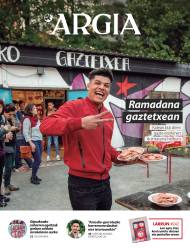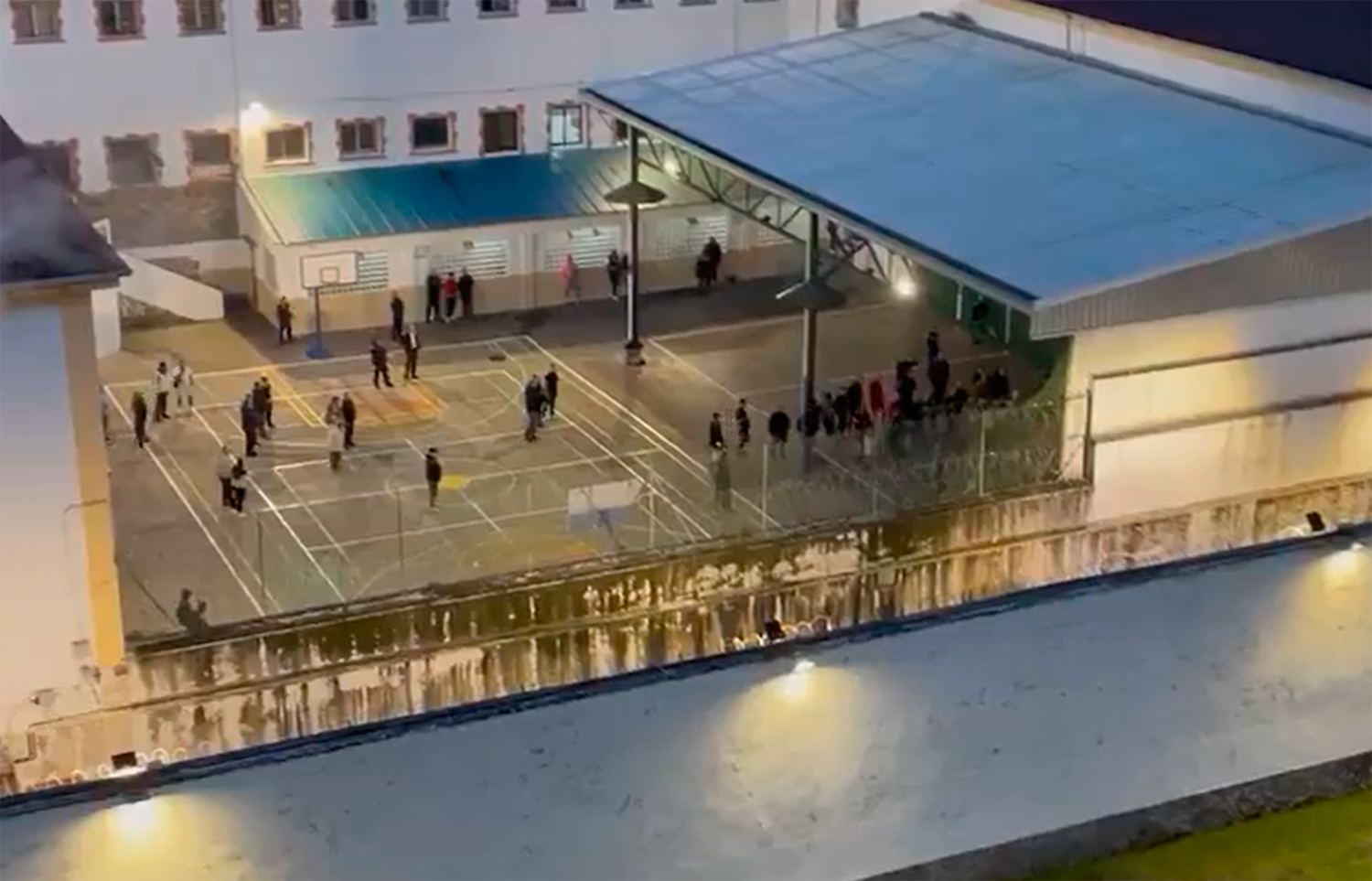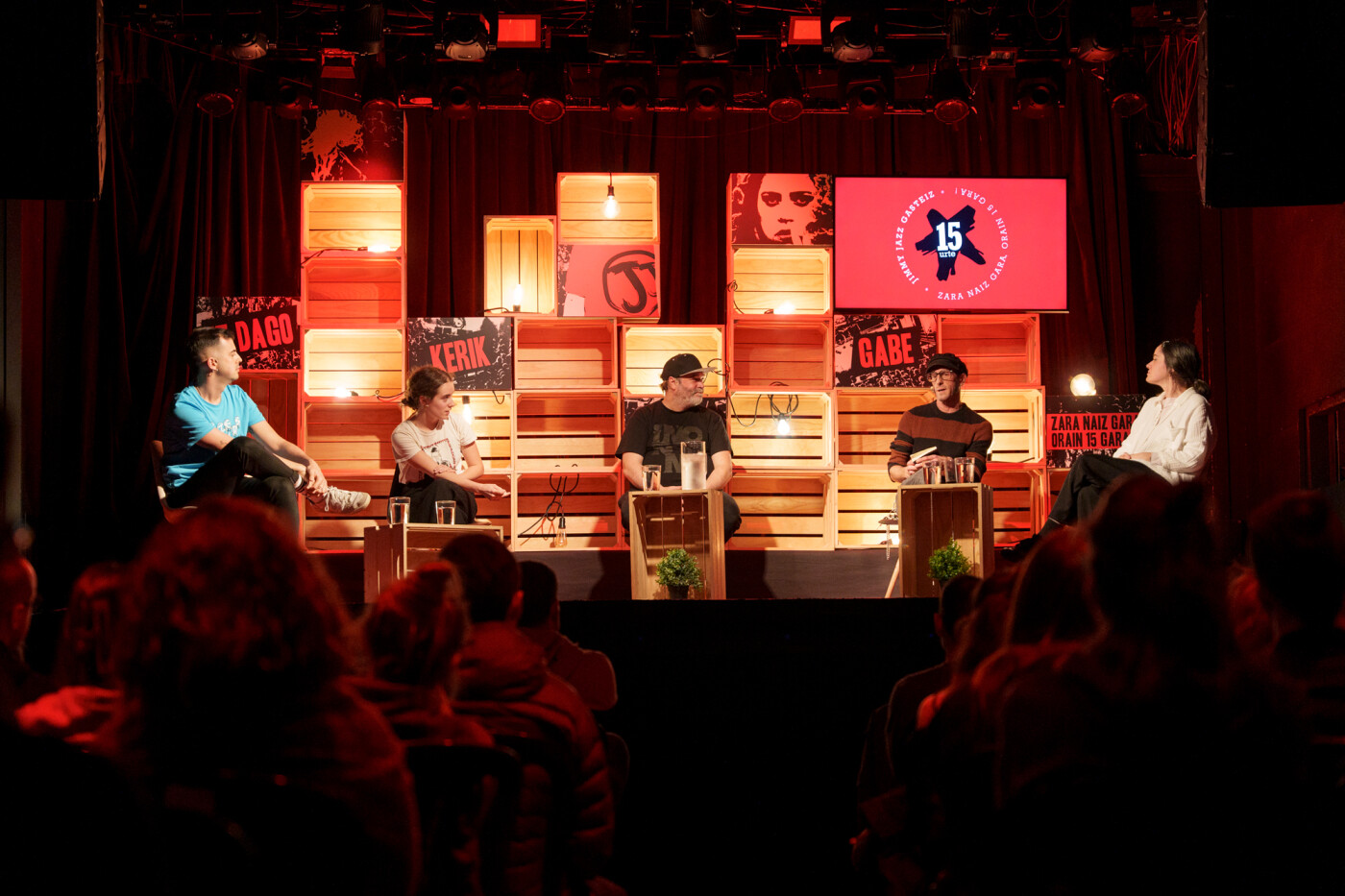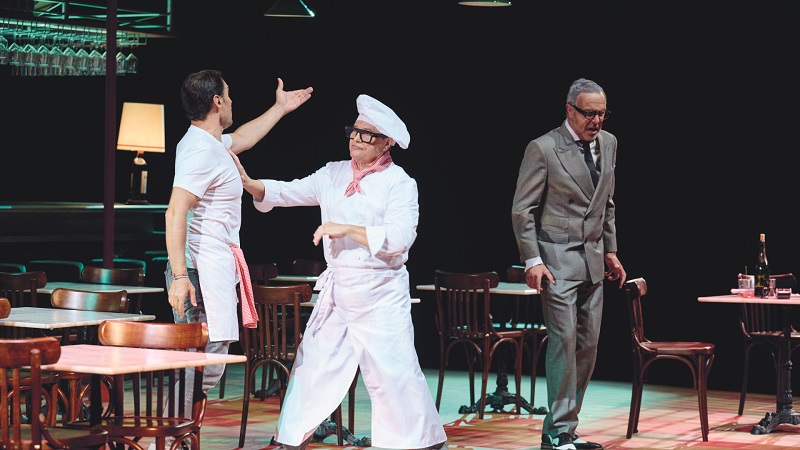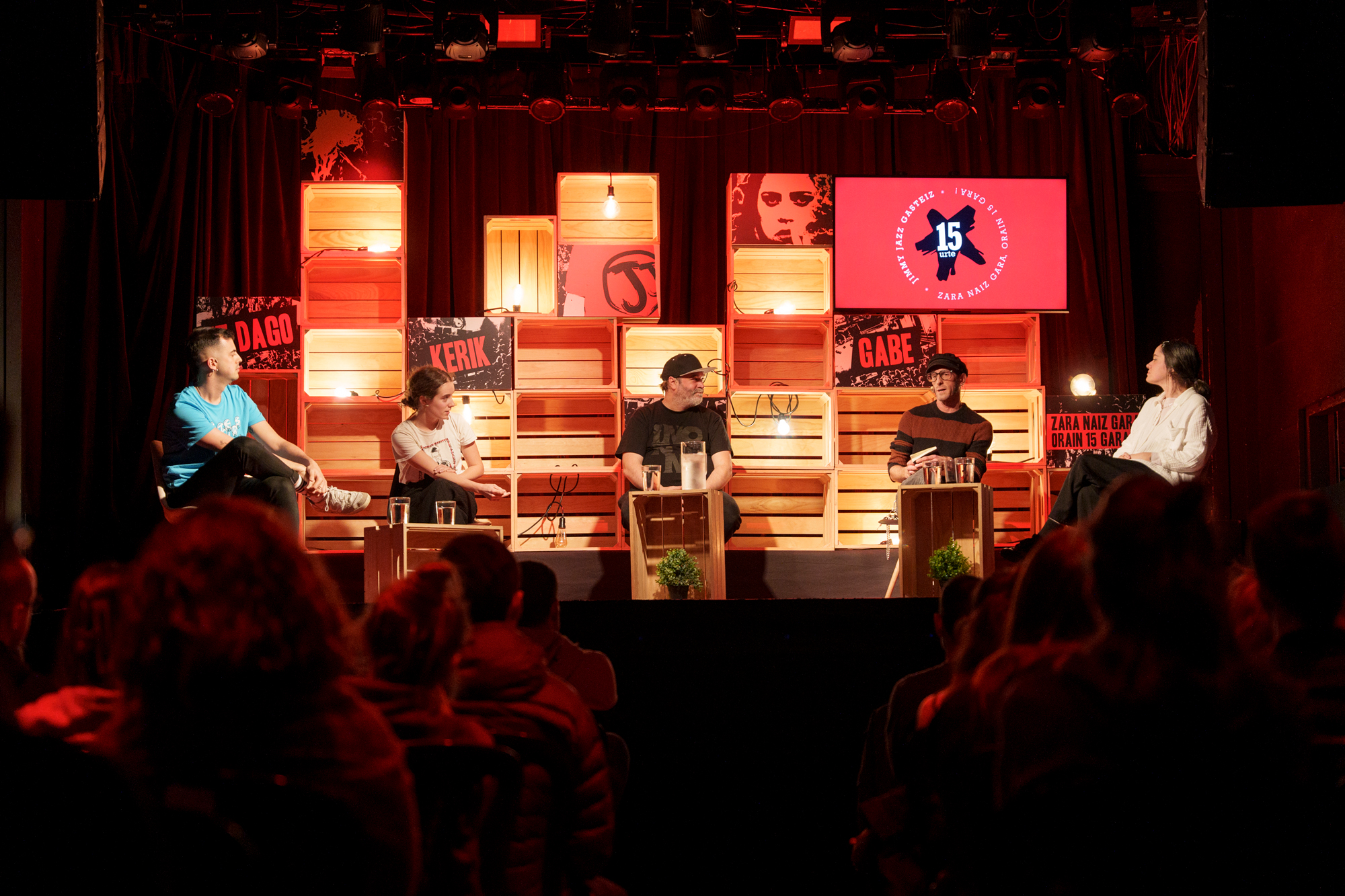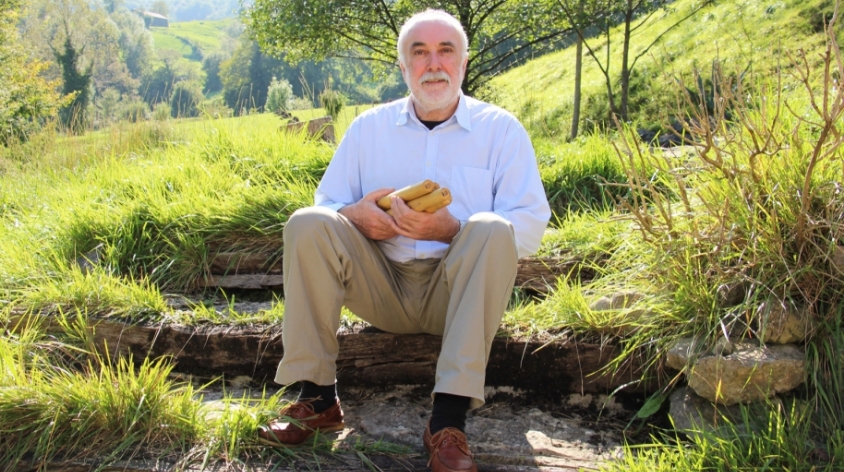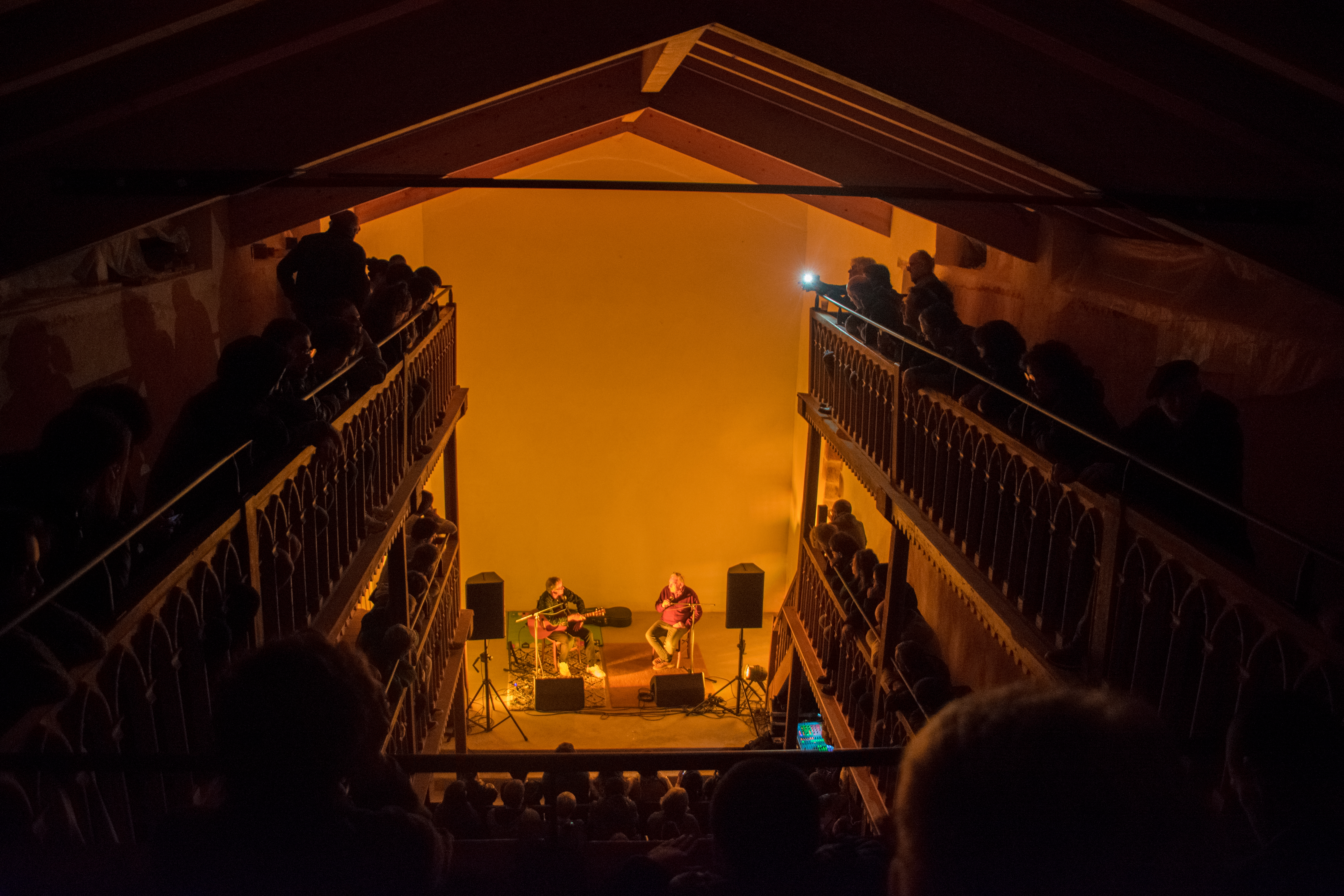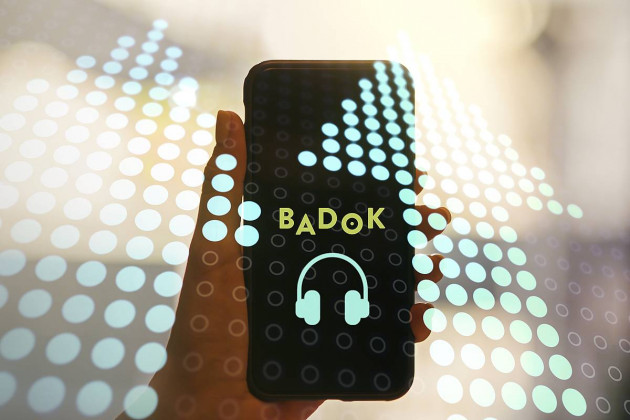"The same picture that endangered my life has brought me fame and success, and now it's a kind of curse."
- Born in 1988 in the refugee camp of Yarmouk, Damascus, Syria, within a Palestinian family. His job was the piano, but the war had taken away everything. However, in the midst of the massacre he continued to make music, and those images filled the pages of our media. He came to Germany on foot in 2015 and managed to continue to live on music, more successfully than ever before. Mixel Etxekopar, invited to the Xiru festival, has operated for the first time in Euskal Herria.
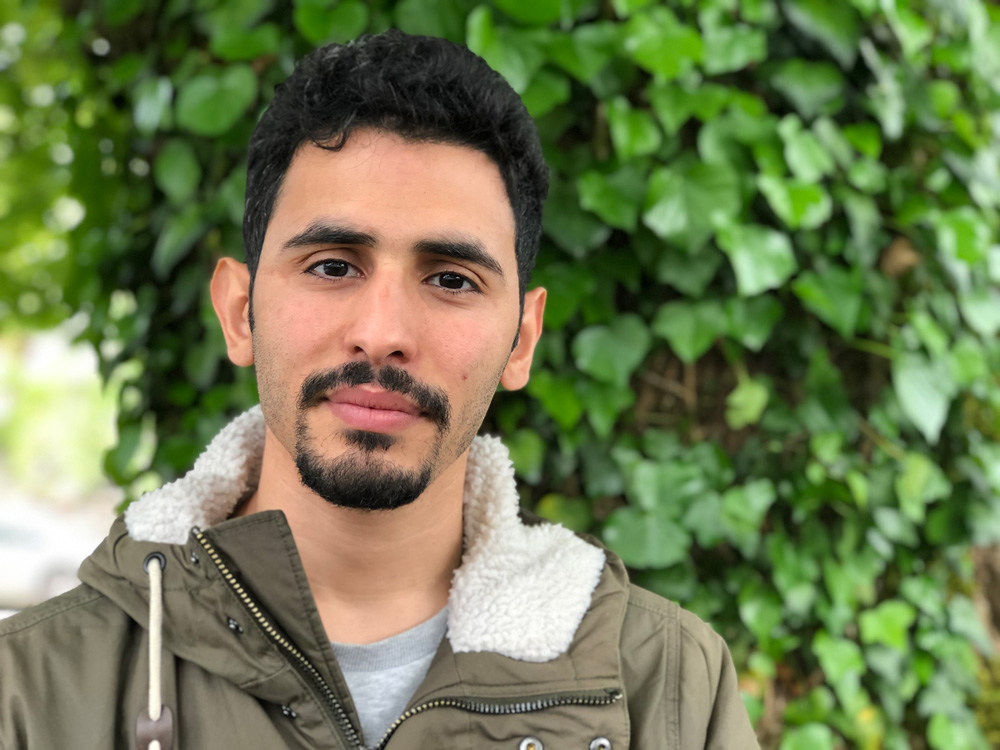
Being a professional composer is a feat, not only in our environment, but almost anywhere. But the determination of those who want to be born and live from music in a Syrian refugee camp seems particularly admirable to me...
Well, the determination was of my father -- laughing. I was a violinist, blind man, I loved classical music above all, and I wanted it too. When I tried to touch her, my neighbors laughed at me because the instruments were a Roma thing. My mother's family regarded him as a losing father, and my grandfather told me that that artifact would serve only to open and sell tomatoes on the piano, and that it would never give us money. I didn't like it either.
Why did you hold it then?
In the environment and the culture in which we grew up, it is not easy to fight against the will of the father. I had that plan designed for me, and I had no choice but to accept it. I started off by hating Beethoven, Chopin and everyone else in Homs' Conservatory, but I soon realized that the musical universe was much broader, that I could use it as well, and then it changed our relationship. My mother's family was wrong because my father was very smart: with the studies, I was able to start teaching, and in Yarmouk's very room we set up a small pianos tuning workshop, and we made a greater fortune than our grandfather had ever imagined. At the time, a teacher's monthly salary in Syria was between 60 and 70 euros. We win 10,000 a month! We were able to buy seven homes for relatives, each of 200,000 euros in Damascus, because they are very expensive, and we also opened a second room. All thanks to music.
But in 2011, the war broke out and brought down everything you had built…
Everything we had achieved until then… And the plans we had before our eyes, because my wife and I were just married, our child was only six months old when the bombings began. Yarmou had become "The Hunger Field," and we saw people starving to death. I started picking up the plastics from the streets to make fire and to survive by coming in fried falafeles. But the fallafels also started to end, they arrested my brother, everything was black… I thought death would soon devour us. Armed groups, on the one hand, offered money to desperate families in exchange for men and boys to join their troops. But I couldn't...
…you in the music found a way to flee and care for others in the midst of the massacre.
I did it first for myself and me, so as not to lose my head, to remember who I was. It's true that when I took the piano out into the street and played, for a while, the gathered people applauded and sang, as if they had turned away from the pain. But I don't like to say that I was a savior of anyone's soul, because it wasn't like that. Thousands of people continued to lose their lives.
-I was almost killed by that photo. The author, the photographer Niraz Saied, is dead, and I do not like to talk badly about the dead. But I also told him: he took that picture without me realizing it and sold it without my consent to CNN.”
But you already know that in the West we are professionals in the search or construction of icons. The media needs heroes to tell stories. And in that sense, his famous photograph, which shows up playing the piano in the middle of the massacre, was a candy.
Yes, but I was almost killed by that photo. Look, the author, the photographer Niraz Saied, is dead, and I don't like to talk badly about the dead. But I also told him: he took the picture without me realizing it and sold it without my consent for 560 euros to CNN. It was immediately resounding, and that's why Al Nusra and Daesh pointed out to me. They put me on the blacklist, burned my piano and tried to cut my fingers. Many other photographers who, like Saied, documented our daily lives also did so in a very irresponsible way, without taking into account the consequences that the publications of their images could have.
Why?
Because ISIS has nothing to do with Islam! Any pretext is enough to decapitate people, and appearing in the Western media can make you suspicious. Do you know how many people were identified, denounced and murdered in this way, not only by Daesh but also by other parties? A lot! And the victims didn't know that someone had taken a picture of them, or that they had come to European or American media, because we didn't consume their media and the Arab media didn't buy them.
Apart from having lived and suffered a foreign war, you believe that they served you to feed the narrative of it, regardless of your security.
That is it! Every time I read or hear about the Syrian Civil War, I get furious. This is a world war, what they've done in Syria. The United States, Turkey, Russia, Saudi Arabia, Iraq, Iran -- they're blended in this, but the dead, of all kinds, are Syrians.
The same image that endangered your life and that you despise for your way of doing and its consequences, but it has brought you fame and success in Europe. Is ambivalence not easy?
No, and that's why I have a love and hate relationship with my story. In 2015, as soon as I arrived in Germany and got the refugee passport, I started to give concerts; 20, 30… Every month! In Paris, in London, in Hiroshima -- I was "photo pianist," "with green t-shirt," more and more people recognized me, and I started receiving a lot of amazing deals. Today, I still get about ten emails into the mailbox every day. But I have a deep sense of guilt that I cannot get rid of. I've written a 350-page book on account!
Why?
Someone took a picture of me in the midst of a war that has killed over 500,000 people!In addition, it's a kind of curse, a label that I've been given: Since I arrived in Europe I have rounded off a lot of projects, different compositions, discs, collaborations… But only those who identify me in one way or another as a "photo pianist." And this has condemned me to remember again and again my painful past. In each presentation, in each interview…
Are you uncomfortable now?
No! Not now… Because this dialogue is making me reflect. But believe me, the questions of most journalists are looking for bloody details, the morb in the context of the bombings, when they came to cut my fingers, the days my wife and I spent in jail… And I can't do more. Furthermore, do you know what is going on? While I do with journalists and strangers the exercise I would have to do with family members at home; look back, take ghosts from within, ask how we feel… put some order in this inner chaos. But this frenetic rhythm doesn't leave me room.
Mental health is a serious problem that we have forgotten in one corner of the issue of refugee wars and other refugees, as the consequences could be medium-long term. Don't you think so?
The doors of Germany closed right after I walked in. I remember that on the road I felt stronger than ever, making 2,500 kilometers on foot across Europe was an easy thing, because I had a goal, a north. Then get the passport, then bring the woman and the child, then the father and the mother… And meanwhile the music. But don't think that in Germany, nobody helped us understand and manage our internal processes. Yallah! To work! No time to digest anything that happened and no professional care. I was young, I had a handle, but… did they lose the whole family? Old people?
How do you feel now?
Well, even though I've managed to bring my family together, or maybe that's why, I'm now off course. Sometimes I have suicidal thoughts. Now I may have become trauma. I want to put an end to this madness. I don't know if he'll be in six months or in a year's time, but I'll stop giving concerts. At DHL I can work by moving pallets from one side to the other, like the vast majority of refugees, with their heads blocked, thinking nothing and earning money.
But you like the piano!
I will continue to play, at home, for those in the house. I guess I'll give the classes. But "the pianist in the picture" doesn't want to give more concerts.
“I have a love and hate relationship with my story. In 2015 I arrived in Germany and was able to start performing concerts as soon as I got the refugee passport; 20, 30… Every month!”
Now you live in Wiesbaden. Would you like to return to Yarmouk?
Yes, but with a German passport. Life in that refugee center was not easy. The houses had seven and eight floors, no elevator. We lived around 700,000 people, but I loved it. Life there was intense. But I was born a refugee, I have lived in denial of the right to move freely, and the time has come to remove that label from me as well.
Are there any labels you prefer for you?
Mostly miscegenation defines me. For many years, I started working on classical music, but in general, I compose the Middle East folk, especially the Syrian folk, and jazz by mixing it together.
Deus
Kaskezur
Usopop, 2024
-----------------------------------------------------
We have nothing to lose,” the baztandarras say. And that's right. They have always made music to enjoy, play and play among four musicians who have been growing up. Since the group was... [+]
We have known Aitor Bedia Hans, a singer of the Añube group for a long time. At that time we were reconciled with BEÑAT González, former guitarist of the Añube group. It was at the university time, when the two young people of Debagoiena came to Bilbao to study with music in... [+]
Kutixik Non
Festival: In the Casa de Cultura de Intxaurrondo, in San Sebastián.
When: 26 October.
---------------------------------------------
It is a musical initiative that emerged in Donostialdea and aims to "collectively confront the music industry that wants precarious,... [+]
Opera groups Don Pasquale de
Donizetti: OSE and Bilbao Opera Choir.
Soloists: S. Orfila M.J. Moreno, F. Demuro, D. Del Castillo, P.M. Sánchez.
Stage Director: Emiliano Suárez.
Scenography Alfons Flores.
Place: Euskalduna Palace
Date: 19 October.
... [+]
Beware of that view of the South. Firstly, to demystify the blind admiration of the green land, the white houses and the red tiles, unconditional love, fetishism associated with speech and the supposed lifestyle. It leaves, as Ruper Ordorika has often heard, a tourist idea... [+]
Badok-ek, Berriako musika atariak, 15 urte bete ditu. Bi ekitaldi ezberdin antolatu dituzte urteurrena ospatzeko, bata Hendaian azaroaren 16an eta bestea Durangoko Azokan. Hainbat artista izango dira bertan. Euskal musikaren gaur egungo egoeraren erradiografia txikia ere eskaini... [+]
Maniaks
Knives
Self-production, 2024
------------------------------------------
It is common to create music groups in the circle of youth, and in Arrasate even more. But keeping a team in shape requires a lot of effort and commitment, and if you don't throw away, time... [+]









